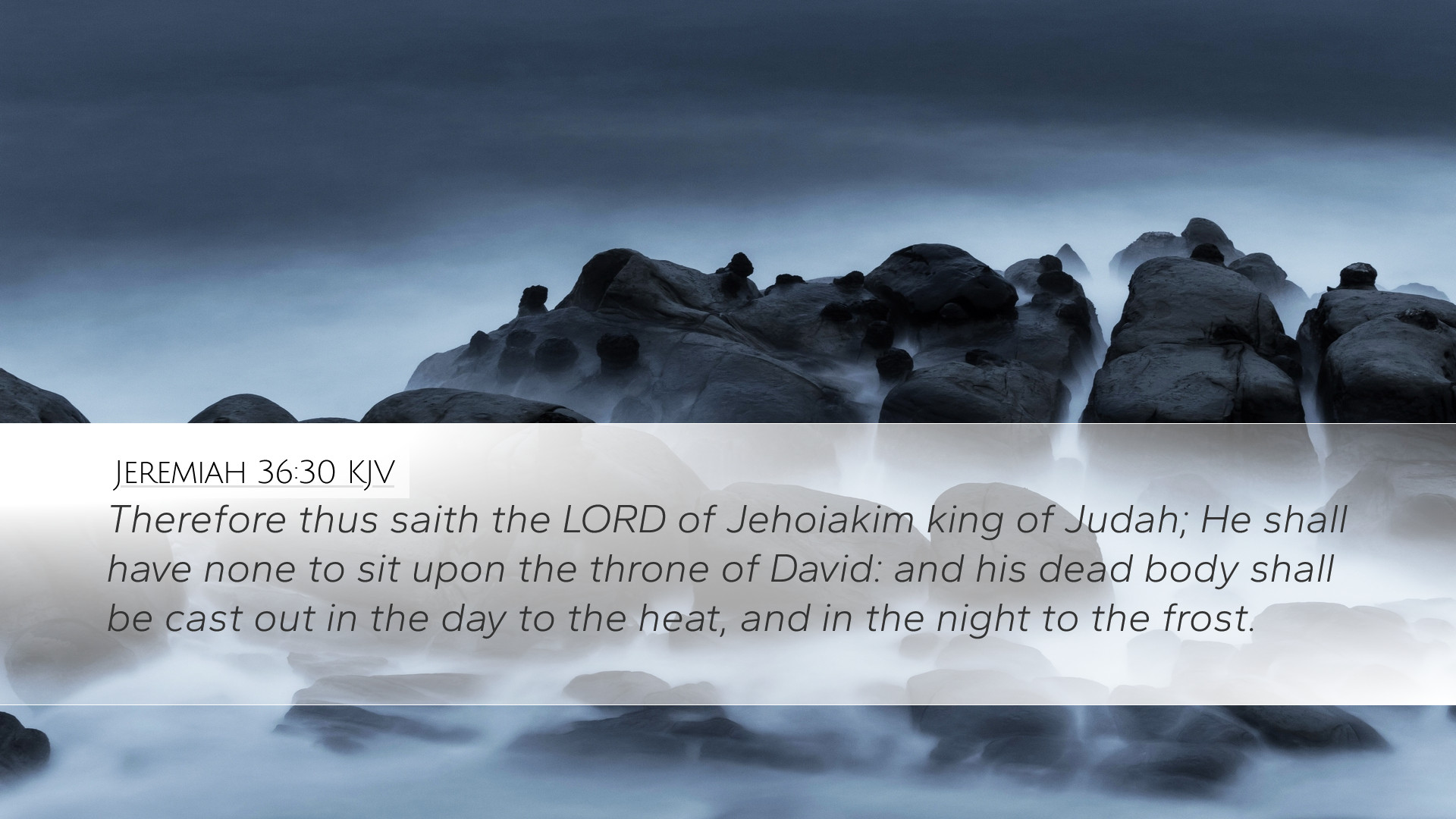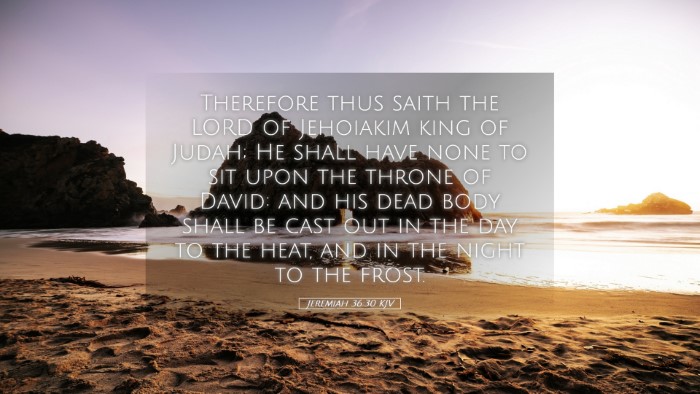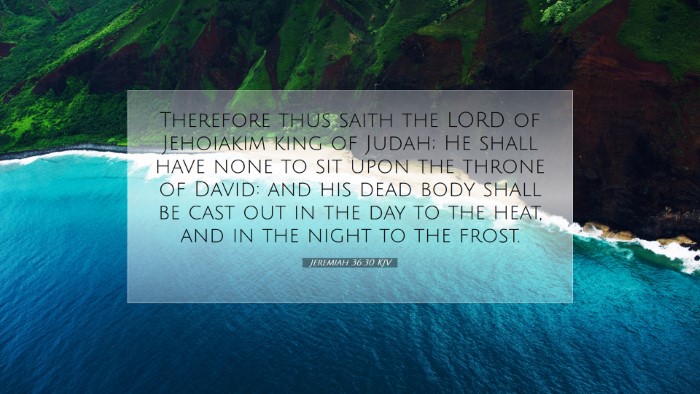Commentary on Jeremiah 36:30
Jeremiah 36:30 states:
"Therefore thus says the Lord concerning Jehoiakim king of Judah: He shall have no one to sit on the throne of David, and his dead body shall be cast out to the heat of the day and the frost of the night."
Contextual Overview
This verse is situated within a broader narrative about the actions of King Jehoiakim and God's judgment against him for his disobedience. The chapter recounts the burning of the scroll containing the prophecies against Judah, illustrating the king’s rejection of God’s message delivered through Jeremiah.
Theological Implications
Several important theological implications arise from this verse, especially regarding kingship, divine judgment, and the consequences of sin.
-
Judgment Against Disobedience: Jehoiakim's refusal to heed God's warnings encapsulates a theme prevalent throughout Scripture: God’s judgment against those who oppose His will. The condemnation of Jehoiakim shows that divine authority ultimately prevails, regardless of earthly power.
-
Legacy of Kingship: The promise that no one from Jehoiakim’s lineage would reign reinforces the idea of the Davidic covenant, illustrating that unfaithfulness has dire consequences for leadership and the people of God.
-
The Fate of the Unsaved: The imagery of Jehoiakim’s dead body being thrown out reflects the gravity of a life lived in rejection of God’s ways. It serves as a warning to all who might contemplate a path contrary to divine commands.
Insights from Commentators
Matthew Henry
Matthew Henry provides a detailed exploration of God's judgement against Jehoiakim in his biblical commentary. He emphasizes the seriousness of Jehoiakim’s sin and the fulfillment of God's promise of judgment - that he would not have a descendant upon the throne of David. Henry notes:
"In rejecting the words of the Lord, Jehoiakim forged his own identity as an enemy of God, ensuring his downfall and disgrace."
Henry also highlights the manner of Jehoiakim's death as particularly shameful, which serves as a testimony to the destructive nature of rebellion against God.
Albert Barnes
Albert Barnes, in his commentary, focuses on the historical context, lamenting how Jehoiakim's reign epitomized a critical moment in Judah’s history. He highlights the verse to emphasize:
"Jehoiakim’s defiance of the divine prophecy, culminating in a reign marked by disobedience, sets a precedent for the inevitable consequences of turning away from God."
Barnes elaborates on the symbolic nature of the throne of David, indicating that this proclamation not only affected Jehoiakim but also signaled a shift in God’s plans for Israel's kingship, hinting at a future restoration through Christ.
Adam Clarke
Adam Clarke offers a more detailed exegesis concerning the phrases in Jeremiah 36:30. He points out the original language nuances and explains:
"His dead body thrown to the heat of the day signifies the total disgrace and judgment he faced for his actions."
Clarke emphasizes the lack of burial which was considered a severe punishment in ancient Near Eastern cultures, highlighting the spiritual and social ramifications of Jehoiakim’s rejection of God.
Application for Today
This verse serves as a powerful admonition for both church leaders and believers enthusiastic about their journey in faith.
-
Leadership Accountability: Both spiritual and secular leaders are called to be diligent in their conduct, understanding that their actions have wider implications for the communities they serve.
-
Importance of Heeding God's Word: Just as Jehoiakim’s downfall was sealed by ignoring God’s prophecy, contemporary believers must prioritize the teachings of Scripture to avoid similar fates.
-
The Nature of Divine Judgment: Jehoiakim's story reminds us of the seriousness of God's judgment. Believers should view Scripture not just as ancient text but as divine instruction for righteous living.
Conclusion
Jeremiah 36:30 serves as a sobering reminder of the consequences that arise from rebellion against God. The insights from Matthew Henry, Albert Barnes, and Adam Clarke illuminate the themes of judgment, accountability, and the importance of fidelity to God's Word. Through this commentary, pastors, students, theologians, and scholars are encouraged to deeply analyze their own lives in light of Scripture and to proclaim the necessity of obedience to God in their teaching and guidance of others.


